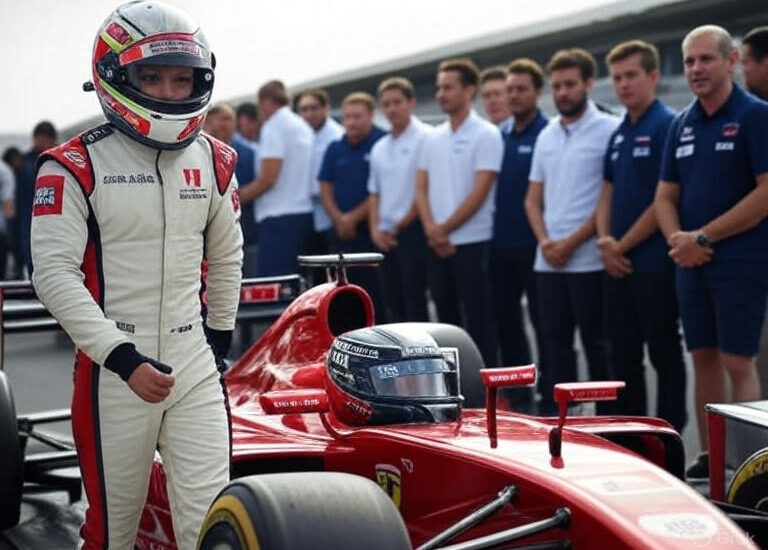- July 24, 2025
- Posted by: Dave Kurlan
- Category: Understanding the Sales Force

The new Brad Pitt movie, F1, was fun, immersive, memorable, and we loved it.
While those are the same words I attach to Baseline Selling training, this article is about Brad Pitt’s character, Sonny Hayes.
I’ve never paid much attention to auto racing or Formula 1 but if you haven’t seen the movie, you should!
Sonny is a top race car driver, takes orders from no one, and drives his way, on his terms, regardless of the risks. In sales terms, Sonny is a maverick.
Most sales teams have a maverick and in large teams, more than one. They bring in the big deals, but on their terms. They kneecap sales management by refusing to use CRM as intended, not sharing details about opportunities, not following the company’s sales process, not being team players, and not modeling ideal sales behavior.
That last point is important.
Newer, less successful salespeople look to the company’s top producers and try to emulate what they do. But what happens when a top producer won’t participate in sales meetings, hijacks those meetings when they do participate, spends most days on the golf course, refuses to prospect for new business, and relies on personality and tactics that work only for them?
While most sales managers find ways to justify this behavior because of the revenue generated by their mavericks, what happens when the big revenue becomes mediocre revenue and the salesperson continues to behave like a maverick? That day always comes and along with it, resentment from the rest of the sales team who wonder why they have to follow the rules but the maverick doesn’t. After all, it’s not like the maverick is still the top salesperson.
So what starts as justification for poor sales behavior eventually becomes a cancer.
In the movie, Sonny Hayes is that guy.
Until he isn’t.
He actually changes.
A little.
Enough to become a team player. A great and important team player.
Why? His integrity was even stronger than his history of being a maverick and it turned out that helping the team win and maintaining his integrity were one in the same.
My advice to clients with a troublesome maverick has always been to isolate them from the team. Let them know that as long as they continue to crush their numbers they could work for themselves but the moment they miss their number they worked for my client. The maverick was required to commit to agreement.
My advice was not a solution, but more of a work-around, and from what you have already read, it usually ends badly.
After seeing F1, I have different advice. If you have a maverick on your sales team and they have integrity, appeal to their integrity. Help them understand that they are part of the team, have a lot to offer the others on the team, and if they want to remain on the team, you are modifying their job description so that they must also help others on the team succeed.
Otherwise, what is the point?
They might want more money, concessions, special treatment, or more. It’s up to to determine whether or not it is worth it. If they aren’t willing to help the entire team win, show them the door. I wrote an article in June about the Boston Red Sox trading away their star slugger to the San Francisco Giants. While they did not receive equal talent in return, they did rid themselves of a maverick and a cancer, and achieved addition by subtraction. They are a better, more cohesive team without him.
When the two top scorers quit the basketball team in the movie Coach Carter, the coach says, “Then we’ll have two new top scorers this year.”
Dealing with mavericks isn’t easy, especially when a sales manager inherits one or more, but they are a part of life managing a sales team.
Don’t allow mavericks to hold you hostage because there is little worse than allowing the tail to wag the dog. The reality is that even though it doesn’t feel that way, you do have all the leverage. That said, it’s not easy or fun. It’s not unusual to have anxiety over this and you will feel stressed before, during and after you make the big move. If you want some help, feel free to reach out to us!
